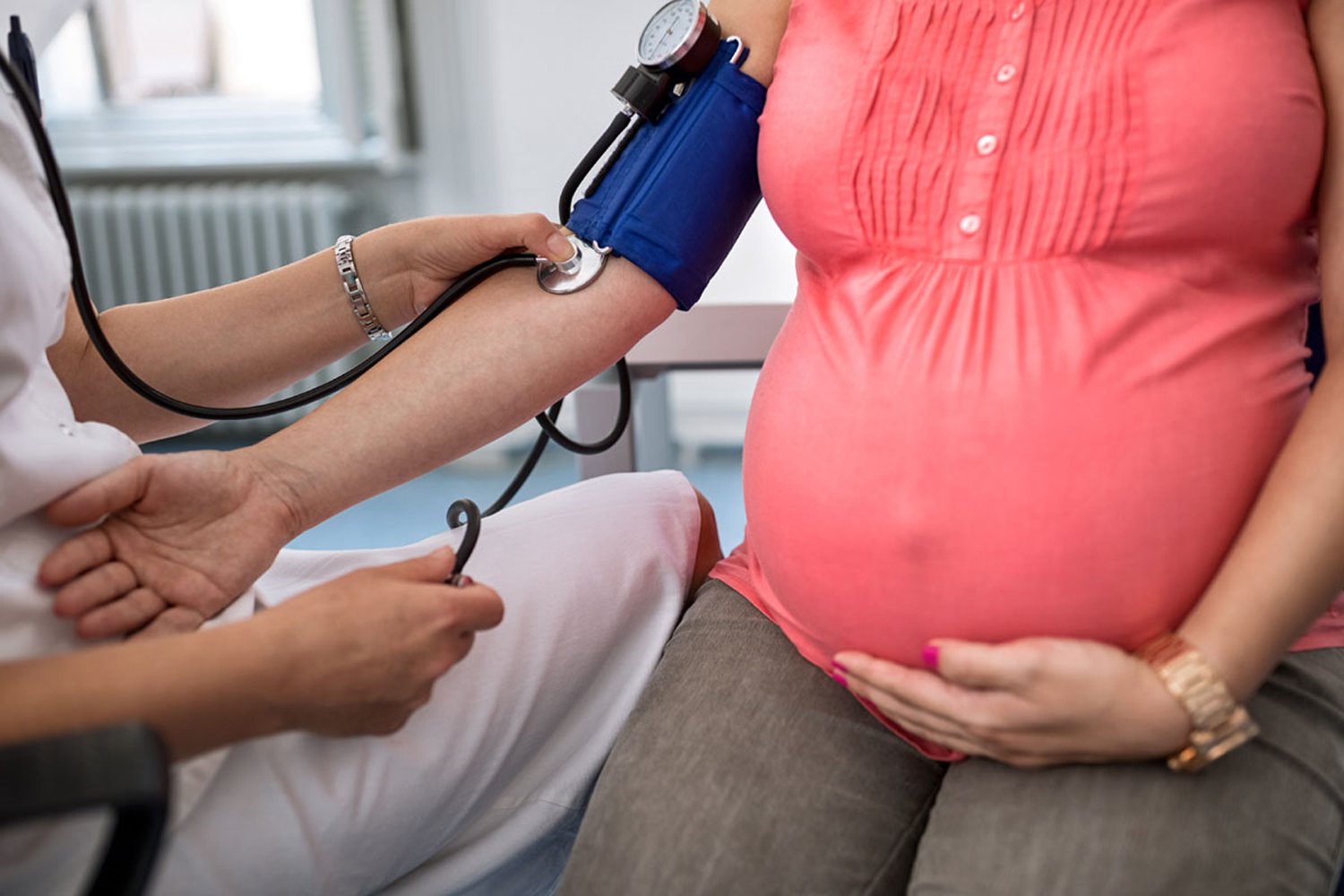
In normal pregnancies, your blood pressure is lowered as an adaptation mechanism.
Pregnant women should not have high blood pressure. If your measured blood pressure is at or above 140/90, this value indicates high blood pressure and you should contact your doctor immediately.
If there is protein leakage in the urine along with high blood pressure, this is defined as ‘preeclampsia’.
Ten percent of pregnant women can have high blood pressure. We don’t know why it’s rising.
In some cases, the risk of developing high blood pressure during pregnancy increases.
What are these?:
- Women of their first pregnancy
- Overweight pregnant women
- Pregnant women under the age of 18 or over the age of 35
- kidney disease accompanying pregnancy
Those who already had high blood pressure before pregnancy
Those with a coagulation disorders
If the mother has high blood pressure, the baby is affected by this condition. What can happen:
- Fetal growth restriction
- Oligohydramniosis
- Placental abruption
- and serious conditions such as the death of the baby may be encountered.
For these reasons, the presence of high blood pressure in pregnancy requires serious and close follow-up and treatment. These mothers have an increased risk of giving birth prematurely. Blood pressure is tried to be lowered with various drugs, but the definitive treatment is the delivery of baby.
With delivery, the mother’s blood pressure usually returns to normal within a few days. Babies of mothers with high blood pressure are at risk of preterm birth and low birth weight. In addition, these babies may have low blood sugar after birth, and body temperature control may become difficult.
Women who experience high blood pressure or preeclampsia during pregnancy have an increased risk of developing high blood pressure in subsequent pregnancies. Pregnant women who have a history of previous preeclampsia should be in a plan for a proper pregnancy follow-up.
Please click here for more detailed information.
If high blood pressure is not controlled during pregnancy, it can cause serious conditions such as headache, blurred vision, swelling involving the hands and face (oedema), epileptic seizures and cerebral hemorrhage, which can be fatal for the mother.
